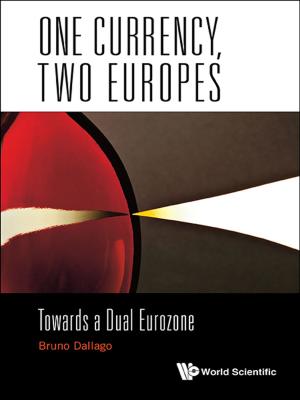Cultural Security
Evaluating the Power of Culture in International Affairs
Nonfiction, Social & Cultural Studies, Political Science, International, International Security, International Relations, Business & Finance| Author: | Erik Nemeth | ISBN: | 9781783265503 |
| Publisher: | World Scientific Publishing Company | Publication: | November 27, 2014 |
| Imprint: | ICP | Language: | English |
| Author: | Erik Nemeth |
| ISBN: | 9781783265503 |
| Publisher: | World Scientific Publishing Company |
| Publication: | November 27, 2014 |
| Imprint: | ICP |
| Language: | English |
Over the past two centuries, abuse of antiquities and fine art has evolved from the “spoils of war” into a medium for conducting terrorism which strives to erase the cultural heritage of “the other”. At the same time, the growth of the art market over the past fifty years has created opportunities for exploitation of cultural property. Since World War II, there has been maturing international awareness that armed conflict and looting pose a threat to cultural property; but simultaneously, art trafficking and the politics of cultural property create opportunities amidst risks in developed “collecting nations” and emerging “source nations”.
This is the first book in the literature that touches on the interrelation of the financial value, politics, and security of cultural property and suggests the implications for the power of culture in global affairs. The intersection of these issues forms the basis for a new field which this book examines — cultural security. As part of the changing significance of cultural property in foreign relations, Cultural Security assesses corresponding security threats and opportunities for diplomacy.
This book will take readers through the concepts and issues surrounding cultural property, cultural currency and cultural power, leaving readers with invaluable insights on the political economy of cultural property and the resulting source of “alternative power” in global affairs.
Contents:
-
Cultural Property — From Wartime Plunder to Tactical Exploitation:
- Art and International Security
- Plunderer and Protector of Cultural Property
- Conflict Art
-
Cultural Currency — Practical Significance of Cultural Property:
- Collecting Cultural Intelligence
- Art Sales as Cultural Intelligence
- Strategic Value of African Tribal Art
-
Cultural Power — Emerging Political Clout of Cultural Property:
- Artifacts of Wartime Art Crime
- Art-Intelligence Programs
- Cultural Property and Foreign Policy
-
Conclusion:
- Alternative Power
Readership: Undergraduates, postgraduates, researchers, and academics in various fields such as Art History, Archaeology, Anthropology, Law, Political Science, Economics and Security Studies, as well as lawyers, museum administrators and policymakers interested in cultural security.
Key Features:
- The first book to examine the interrelation of the financial value, politics, and security of cultural property and the implications for the power of culture in global affairs
- Provides invaluable insights on the new field of cultural security, which is an increasingly critical topic of discussion after World War II
Over the past two centuries, abuse of antiquities and fine art has evolved from the “spoils of war” into a medium for conducting terrorism which strives to erase the cultural heritage of “the other”. At the same time, the growth of the art market over the past fifty years has created opportunities for exploitation of cultural property. Since World War II, there has been maturing international awareness that armed conflict and looting pose a threat to cultural property; but simultaneously, art trafficking and the politics of cultural property create opportunities amidst risks in developed “collecting nations” and emerging “source nations”.
This is the first book in the literature that touches on the interrelation of the financial value, politics, and security of cultural property and suggests the implications for the power of culture in global affairs. The intersection of these issues forms the basis for a new field which this book examines — cultural security. As part of the changing significance of cultural property in foreign relations, Cultural Security assesses corresponding security threats and opportunities for diplomacy.
This book will take readers through the concepts and issues surrounding cultural property, cultural currency and cultural power, leaving readers with invaluable insights on the political economy of cultural property and the resulting source of “alternative power” in global affairs.
Contents:
-
Cultural Property — From Wartime Plunder to Tactical Exploitation:
- Art and International Security
- Plunderer and Protector of Cultural Property
- Conflict Art
-
Cultural Currency — Practical Significance of Cultural Property:
- Collecting Cultural Intelligence
- Art Sales as Cultural Intelligence
- Strategic Value of African Tribal Art
-
Cultural Power — Emerging Political Clout of Cultural Property:
- Artifacts of Wartime Art Crime
- Art-Intelligence Programs
- Cultural Property and Foreign Policy
-
Conclusion:
- Alternative Power
Readership: Undergraduates, postgraduates, researchers, and academics in various fields such as Art History, Archaeology, Anthropology, Law, Political Science, Economics and Security Studies, as well as lawyers, museum administrators and policymakers interested in cultural security.
Key Features:
- The first book to examine the interrelation of the financial value, politics, and security of cultural property and the implications for the power of culture in global affairs
- Provides invaluable insights on the new field of cultural security, which is an increasingly critical topic of discussion after World War II















